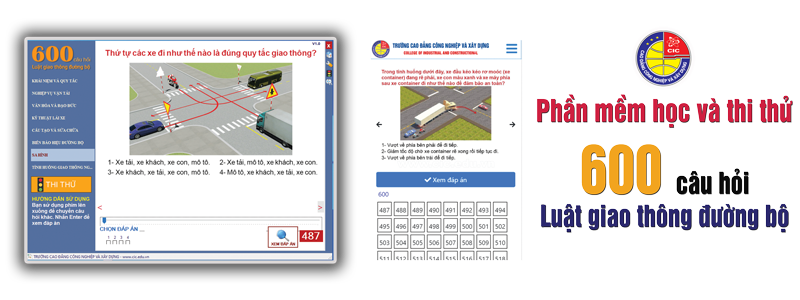TIN TỨC - SỰ KIỆN
-
09
01/2024
(CIC) TỔ CHỨC GẶP MẶT KỶ NIỆM 74 NĂM NGÀY TRUYỀN THỐNG HSSV VÀ HỘI SINH VIÊN VIỆT NAM (09/01/1950 – 09/01/2024) -
09
01/2024
ĐỐI THOẠI GIỮA LÃNH ĐẠO NHÀ TRƯỜNG VỚI HSSV NĂM HỌC 2023-2024 -
23
12/2023
bet 365 live tổ chức kỷ niệm 34 năm ngày hội Quốc phòng toàn dân (22/12/1989 – 22/12/12/2023) và 79 năm Thành lập Quân đội nhân dân Việt Nam (22/12/1944-22/12/2023) -
19
12/2023
bet 365 live ĐẠT NHIỀU GIẢI THƯỞNG TẠI LỄ TỔNG KẾT VÀ TRAO GIẢI HỘI THI SÁNG TẠO KỸ THUẬT TỈNH QUẢNG NINH LẦN THỨ IX -
06
12/2023
GẶP MẶT CHIA TAY ĐỒNG CHÍ NGUYỄN VĂN TUẤN – NGUYÊN PHÓ HIỆU TRƯỞNG VỀ NGHỈ CHẾ ĐỘ -
30
11/2023
BẾ MẠC KỲ THI KỸ NĂNG NGHỀ TỈNH QUẢNG NINH NĂM 2023 -
29
11/2023
KHAI MẠC KỲ THI KỸ NĂNG NGHỀ TỈNH QUẢNG NINH NĂM 2023 -
22
11/2023
bet 365 live TỔ CHỨC KỶ NIỆM 41 NĂM NGÀY NHÀ GIÁO VIỆT NAM -
21
11/2023
GẮN BIỂN CÔNG TRÌNH CHÀO MỪNG ĐẠI HỘI XIII CÔNG ĐOÀN VIỆT NAM, NHIỆM KỲ 2023-2028 -
17
11/2023
bet 365 live ĐẠT GIẢI NHẤT TOÀN ĐOÀN TẠI HỘI GIẢNG NHÀ GIÁO GIÁO DỤC NGHỀ NGHIỆP TỈNH QUẢNG NINH NĂM 2023
Xem thêm...
-
TIN GIÁO DỤC
-
VĂN BẢN PHÁP QUY

